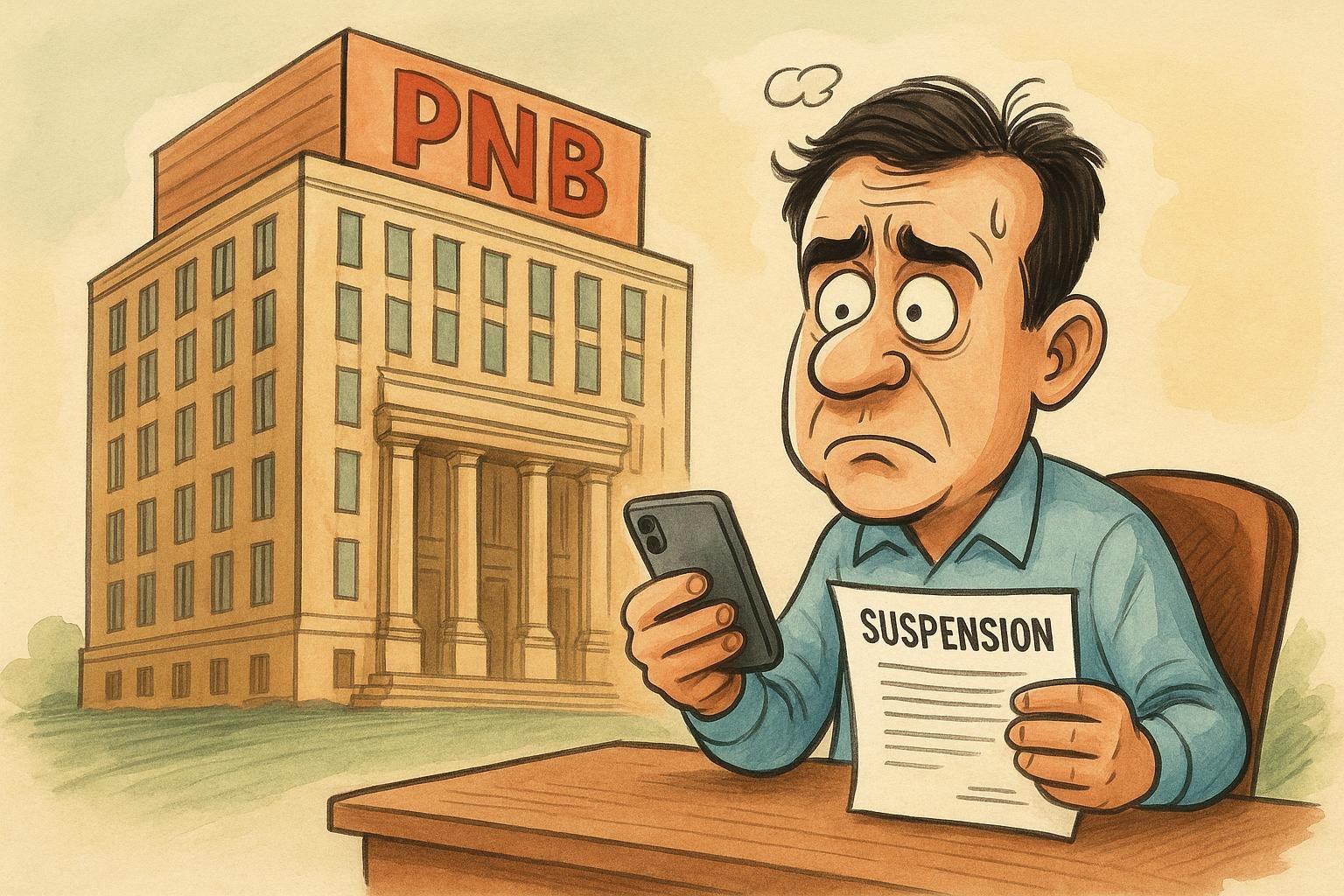In an unusual disciplinary move, Punjab National Bank suspended a Branch Manager for a light-hearted WhatsApp status update, raising questions about employee rights, social media policies, and freedom of speech protections under India’s Constitution.
Suspension Over Social Media Post Raises Eyebrows
Punjab National Bank (PNB), one of India’s largest public sector banks, has come under scrutiny after it suspended a Branch Manager based in South Delhi for allegedly violating the bank’s social media guidelines.
The suspension order, dated April 25, 2025, cited “non-performance” and “violation of social media guidelines/policy” as the reasons for the action.
The root of the controversy, however, is a seemingly innocuous WhatsApp status posted by the employee. The status read:
“Single day casual leave is denied by competent? Authority! Why this Kolaveri de?”

The phrase — a humorous reference to the popular Tamil song “Why This Kolaveri Di?” — appeared to criticize the bank’s leave approval processes but did so in a casual and non-hostile tone.
Bank authorities deemed this post as a violation of its internal social media policy, specifically under clauses prohibiting criticism of “Bank Management, Processes, Strategies, and Policies.” Consequently, the Branch Manager was placed under suspension with immediate effect. During the suspension period, the officer was ordered to stay within headquarters limits and was entitled only to subsistence allowance as per Punjab National Bank Officer Employees’ Regulations, 1977.

Freedom of Speech vs. Institutional Discipline
The suspension has sparked wider debate about the balance between employee rights and organizational discipline. Article 19(1)(a) of the Constitution of India guarantees every citizen the right to freedom of speech and expression. This right includes the ability to express personal views, criticisms, and opinions across various mediums, including social media platforms.
However, the Constitution also allows for “reasonable restrictions” on this freedom in cases impacting public order, defamation, or the sovereignty of India. In the context of employment, organizations frequently implement social media policies to protect their image and operational integrity. Still, critics argue that casual, non-malicious expressions especially on private channels like WhatsApp should not warrant harsh punitive actions.
ALSO READ: Call for Cyber Experts: Join FCRF Academy as Trainers and Course Creators
Legal experts point out that while corporations have the right to protect their reputation, suspending employees over minor personal expressions could infringe upon constitutional rights, unless a clear, measurable harm to the institution can be demonstrated.
Questions About Proportionality and Workplace Culture
The broader question raised by this incident is about proportionality and evolving workplace culture. Is a light-hearted social media comment sufficient grounds for suspension? Are public sector organizations lagging behind private enterprises in recognizing the new norms of digital communication?
In a time when employee engagement, openness, and humor are increasingly recognized as contributors to workplace satisfaction and mental health, PNB’s action appears regressive to many observers.
“It’s a disproportionate response,” a labor rights advocate noted. “Institutions must distinguish between genuine misconduct and harmless expressions of frustration.”

PNB’s action also highlights the need for clear, fair, and updated social media policies that acknowledge the changing realities of employee behavior outside formal work environments.
As the case draws public attention, it remains to be seen whether the suspended Branch Manager will legally challenge the bank’s decision, setting up a potential landmark case for freedom of expression in India’s increasingly digitized professional landscape.

